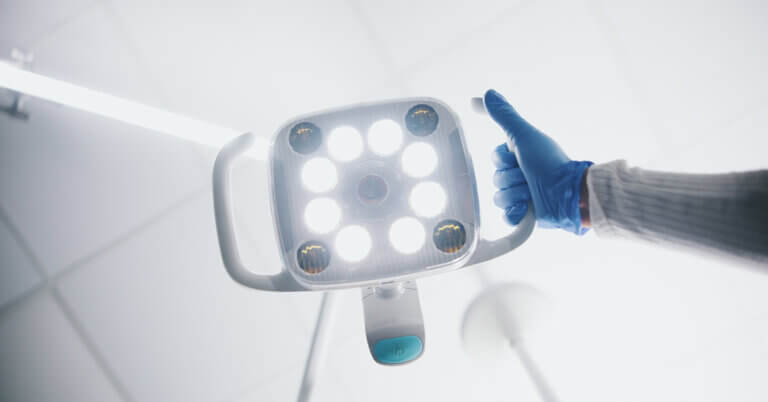July 1, 2025

Burda on Healthcare: The Stories — and Unpaid Medical Bills — Are Forever
My mom legally died on March 30, 2025. She actually died on March 29, 2025, a little after 10 p.m. But by the time the hospice nurse showed up to pronounce her dead in her home of nearly 60 years, it was after midnight on March 30.
Judith Ann Burda was 86. You can read her obituary here.
My mom was my mom with all the good and bad that comes with a typical mother-son relationship. But given what I do for a living, my mom also was one of my firsthand witnesses to all the good and bad with our current healthcare system. She was my Medicare muse, so to speak, and we missed both being Medicare beneficiaries by only two days.
Largely because of her experiences as a member of a Medicare Advantage plan, I’m thankfully enrolled in traditional Medicare. That free health club membership and low-to-no copays for prescription drugs came with a lot of strings attached. Like waiting months to see her in-network primary care physician (PCP).
In her honor, here are some of my weekly blog posts and monthly columns that she inspired:
- “AI in Healthcare? I Don’t Know About That,” published March 18, 2025. She was the skeptical everyman in the story.
- “Comedy Can Outweigh Drama in Hospital ERs” published March 11, 2025. My mom was the person who asked for the Lorna Doones.
- “Having a Good Laugh Over Medicare Advantage Letters,” published February 25, 2025. This was about incompetent Medicare Advantage plans sending solicitation letters to me to my mom’s house where I haven’t lived since 1983.
- “Price Transparency? I Don’t Know About That,” published February 7, 2024. She was the skeptical senior in the story.
- “When Knowing About the Healthcare Revenue Cycle Gets You an Extra Donut,” published March 15, 2023. My mom is my mom in this one. The one who her “top-rated” academic medical center (AMC) misclassified as “self-pay.”
- “Patient Stories from the Front Lines Tell of a Healthcare Capacity Problem,” published December 14, 2021. My mom is Patient A.
-
“Health System Capacity Problems Hit Home,” published September 6, 2022, the Patient A follow-up story.
There are many other anecdotes of my mom’s interactions with the healthcare system that didn’t make it into “print.” My sister, my wife, other family members and I witnessed them firsthand when we took her to various doctor’s appointments, diagnostic tests and medical procedures over the years as well as picked up her prescriptions from the pharmacy.
Here are some of my favorites, although by favorites I mean incidents that made your skin crawl and you’ll never forget.
Who Needs an Appointment?
 Several years ago, she needed her primary care physician’s signature to renew her handicapped license for her car and for the two handicapped parking signs in front of her house. Her deadline to renew was coming up and, despite her many attempts, could not get an appointment with her PCP until after the deadline. She asked me to take her to her PCP’s office to see if they would sign the form if she showed up in person without an appointment.
Several years ago, she needed her primary care physician’s signature to renew her handicapped license for her car and for the two handicapped parking signs in front of her house. Her deadline to renew was coming up and, despite her many attempts, could not get an appointment with her PCP until after the deadline. She asked me to take her to her PCP’s office to see if they would sign the form if she showed up in person without an appointment.
In that medical office building, there’s an outer waiting room where you register. There’s an inner waiting room where you wait to go into a third area with a desk and exam rooms. There’s a locked door between the inner waiting room and the exam area.
My mom had a plan, which she did not reveal to me on the ride. She walked by the outer waiting room, went directly into the inner waiting room and stood by the locked door. When it opened from the inside for the nurse to call a patient, she barged into the exam area, cane and all, and the door shut behind her.
Other patients were staring at me in the inner waiting room like I was the getaway driver. We all heard yelling from behind the locked door. A few minutes later, my mom walked out with her signed form.
I’ll Just Shut Off the Car and Wait
 Her pharmacy was particularly incompetent. It would fill a prescription but not notify her. It would notify her that it filled a prescription when it didn’t. It would fill two of three prescriptions, forcing her to make a second trip for the third. Sometimes it would give her a 90-day supply when the script was for 30 days. Sometimes it would give her a 30-day supply when the script was for 90 days.
Her pharmacy was particularly incompetent. It would fill a prescription but not notify her. It would notify her that it filled a prescription when it didn’t. It would fill two of three prescriptions, forcing her to make a second trip for the third. Sometimes it would give her a 90-day supply when the script was for 30 days. Sometimes it would give her a 30-day supply when the script was for 90 days.
Her workaround, which I inherited after she stopped driving, was to pull up to the drive-through window pharmacy window and turn her car off. That sent a message right there. After the pharmacy tech told my mom that her prescription wasn’t ready and wouldn’t be for some time, my mom would turn her car on and circle back around the pharmacy to the drive-through window again. My mom told the tech that she would keep doing that until they filled her prescription. It was always ready on the third go around.
Here’s What You Can Do With Your ‘Cure’
 More recently, after her physicians diagnosed her with cancer, she made the decision to forgo treatment. The oncologist recommended external radiation therapy for five days a week for six weeks, followed by chemotherapy and then followed by internal radiation. My mom was a frail 86-year-old with post-Polio syndrome, and we all agreed that the treatment would destroy her quality of life if not kill her long before the cancer would
More recently, after her physicians diagnosed her with cancer, she made the decision to forgo treatment. The oncologist recommended external radiation therapy for five days a week for six weeks, followed by chemotherapy and then followed by internal radiation. My mom was a frail 86-year-old with post-Polio syndrome, and we all agreed that the treatment would destroy her quality of life if not kill her long before the cancer would
The oncologist was not happy. She pushed back after my mom’s initial decision. She pushed back again after a follow-up visit. And she pushed back yet again after an emergency room visit. When she pushed back the third time, she played the ace up her lab coat sleeve, switching from “we can treat you” to “we can cure you.” At that point, my mom had had it with her oncologist, telling her, “You just want to send business to your radiation oncologist partner!”
The oncologist was silent. Turned and looked me in the eye. Opened her eyes really wide. Then she walked out of the room. That’s when my mom asked the nurse for some Lorna Doones. Apparently, all my talk about healthcare being a business sunk in with my mom when I was over for coffee.
Try Collecting Your Bill Now
My mom’s oncologist and her PCP work for a large AMC just west of Chicago. Last week, the AMC sent my mom a bill for the unpaid patient balance on her account. My mom owes the oncologist $317.71. She owes her PCP $9.92. The oncologist and the PCP know my mom is dead. I told them by secure message through my mom’s patient portal. That was three months ago. Yet the bills keep coming.
Part of me wants to pay them because I know that’s what my mom would want. People who grew up in the 1930s and 1940s have this aversion to unpaid bills and owing people money. Part of me doesn’t want to pay because I want to see how this plays out. I can get one more story out of my mom’s experiences with the healthcare system.
I’m leaning toward the latter.
Thanks again for one last story idea, Mom.





